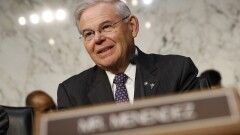WASHINGTON — Unlike most recent congressional recesses, this past summer's break has seen some key financial policy news as bank regulators finalized a pivotal rule
But when lawmakers return from their late-summer break on Sept. 9, there are a host of other unresolved financial services issues facing them, including efforts to let bankers serve the marijuana industry to reforms of anti-money-laundering requirements.
Late last week, House Financial Services Committee Chairwoman Maxine Waters, D-Calif., outlined her panel's priorities for the fall, including oversight of Trump-appointed banking regulators and reviewing Facebook's proposed cryptocurrency. The committee will also consider solutions to increase access to homeownership, explore data privacy and the use of artificial intelligence in financial services and examine the state of minority depository institutions, among other things, Waters said in a press release.
It is unclear if Congress will be able advance any of these initiatives, with the 2020 presidential primaries fast approaching and the nation focused on more polarizing cultural issues. But the end of the August recess gives the industry a chance to continue engaging with lawmakers on legislative priorities.
Here are the key financial policy issues to pay attention to as Congress gets back to work.











